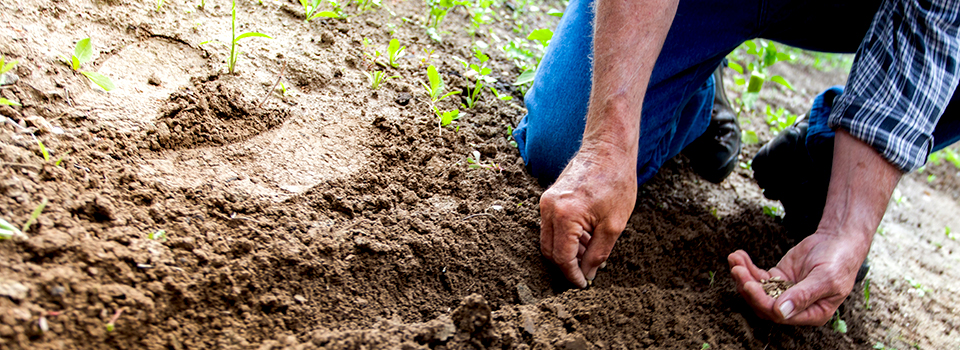Introduction
To prevent weeds in your lawn, start with a healthy, thick lawn. Regular mowing and cutting the right height will keep your lawn healthy and weed-free.
Mow your lawn regularly to remove any long grass or plants that may be providing cover for weed seeds to germinate.
Use a sharp mower blade to make clean cuts into the grass, avoiding damaging the turf beneath.
Fertilize your lawn every few weeks to promote growth and help crowd out weeds.
Pull up any weeds that pop up immediately before they have a chance to spread – this is especially important when new seedlings are starting to emerge from the ground!

What are the best weed control methods?
To prevent weeds in your lawn, make sure that your grass is healthy and thick. A dense lawn will crowd out weeds and make it difficult for them to take root.
Be vigilant about pulling up any existing weeds, including their roots. The sooner you can get rid of them, the better.
Use mulch or ground cover around garden beds and other areas where weeds are likely to pop up. This will help prevent weed seeds from taking root in the first place.
Apply a pre-emergent herbicide before weed seeds have a chance to sprout. This will create a barrier that will kill any weed seedlings that try to come up
How do you prevent weeds in your lawn?
Remove any existing weeds with manual or herbicide removal.
Improve soil health by adding organic matter, maintaining proper pH levels, and watering regularly.
Mow grass high to prevent weed invasion; keep grass at a height of 2-3 inches to crowd out potential weed seeds.
Use mulch to help prevent weeds from taking root and spreading; layer mulch around plants every 3-6 months in the fall and winter.
Be vigilant for new weed growth and take action immediately if you see any!

What are some of the most common lawn weeds?
Some of the most common lawn weeds include dandelions, crabgrass, and clover. Mowing regularly, watering deeply but infrequently, and fertilizing properly can help prevent these weeds from taking over your lawn. Additionally, you can use herbicides to kill these plants before they can grow too much. Be sure to read the labels on herbicides carefully and follow the instructions for best results. If you have a weed problem in your lawn, pulling them by hand or using a hoe may be the best way to remove them from the roots up.
How do you choose the right weed control product for your lawn?
The best way to prevent weeds in your lawn is to choose the right weed control product for your needs. There are a variety of weed control products on the market, so it is important to do your research to find the right one for your lawn. Some factors to consider when choosing a weed control product include the type of weeds you have, the size of your lawn, and your budget.
Once you have chosen the right product, be sure to follow the directions carefully to ensure effective results. Regularly monitoring your lawn for weeds and taking action immediately when they are found will help keep them under control.
There are a variety of weed control products on the market, so it is important to do your research to find the right one for your lawn. Some factors to consider when choosing a weed control product include:
- The type of weeds you have: The type of weeds you have will determine what kind of weed control product you need to use. If you have broadleaf weeds, then you will need a weed control product that is specifically designed for them. If you have grassy weeds, then you will need a different type of product.
- The size of your lawn: The size of your lawn is an important factor to consider when choosing a weed control product. If you have a large lawn, you will need a product that covers a wide area. Conversely, if you have a small lawn, you can choose a products that covers a smaller area.
- Budget: Your budget is an important consideration when choosing a weed control product for your lawn. Some products can be quite expensive, so if your budget is less than $500, these products are likely not for you. You may also want to consider whether you’re looking for a short-term solution or something that will last longer.
How do you apply herbicides to your lawn?
Applying herbicides to your lawn is one of the best ways to prevent weeds from taking over.
However, it’s important to apply them correctly in order to avoid damaging your lawn or harming yourself and others.
Follow the directions for application rate and timing on the label carefully.
Always read the label before using any herbicide product, as not all products are safe for use on lawns.
By following the above tips, you can ensure a weed-free lawn every time!
What other tips can help prevent weeds in my lawn?
One way to help prevent weeds in your lawn is to use a pre-emergent herbicide. This type of herbicide helps to stop weed seeds from germinating, so they never have a chance to take root and start growing.. This will help keep your lawn free of weeds before they have a chance to take hold.
Mowing your lawn regularly is one of the best ways to prevent weeds from taking hold. By keeping your grass short, you’ll make it harder for weeds to get a foothold and spread. Plus, regular mowing will help keep your lawn healthy and looking its best. This will reduce the number of opportunities for weed growth, and it will also make it easier to spot and remove any weeds that do sprout up.
Pulling up weeds as soon as they appear is one of the best ways to prevent them from taking over your lawn. By keeping on top of the problem, you can ensure that your lawn stays healthy and weed-free.. This will minimize the amount of time that they have to grow and spread, and it also reduces the chances that other plants in the area will be affected by their presence.
There are a few things you can do to prevent weeds in your lawn. First, apply a pre-emergent herbicide to prevent weed seeds from germinating. Second, mow your lawn regularly to prevent weeds from taking hold. Finally, apply a post-emergent herbicide to kill existing weeds.. Once you’ve killed off most of the weed population, you can mow your lawn less frequently without having to worry about them coming back strong later on.
Keep your lawn healthy and thick so that weeds have trouble getting started in the first place. A healthy lawn is dense with grasses, which makes it difficult for weed seeds to germinate and grow into viable plants.
Good luck!
